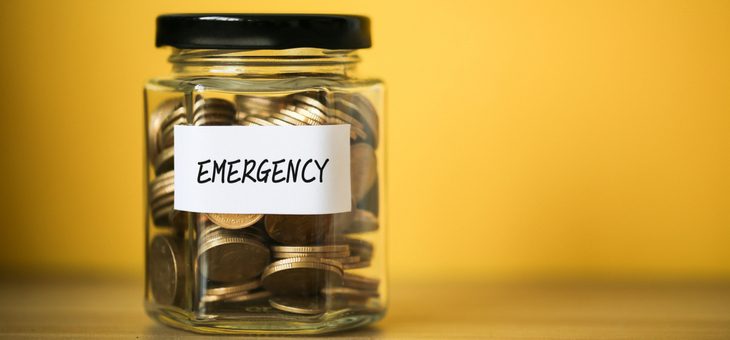Many Australians are a step away from financial disaster, according to a new survey, but baby boomers are proving to be more resilient than most.
New research reveals that almost one-third of Australian households do not have an emergency savings fund and many could not cover even one month of living expenses.
And that’s despite many Aussies saving more during the height of the pandemic in 2020 when lockdowns were in force, spending options were limited and emergency COVID payments were being distributed.
Comparison site Finder reports that a nationally representative survey of 1000 respondents found just one in three had enough funds to last more than six months if they were to lose their jobs today, while almost one in five (19 per cent) had no emergency savings safety net at all.
Read more: AFR’s 2021 Rich List shows we’re not all in this together
The survey showed the average person could afford to support themselves for nine months before their cash ‘dried up’.
On average, baby boomers could survive off their savings and sick leave for 18 months compared to just over three months for Gen Z.
Women (27 per cent) were more than twice as likely as men (11 per cent) to say they would not be able to sustain themselves at all.
Kate Browne, personal finance expert at Finder, said if your total monthly outgoings – including rent or mortgage payments – were $4000, you should start by aiming to have at least $12,000 set aside.
She urged savers to seek out a decent interest rate to maximise the returns on their money.
Read more: CPA issues simple advice to avoid ‘poking the bear’ this tax time
The survey paints a different picture to the situation in February when BIS Oxford Economics chief economist Sarah Hunter said the average household was “definitely a chunk better off”.
Her comments were based on the household savings rate – the measure of the percentage of household disposable income saved every month.
In June last year, after the first wave of COVID lockdowns, it surpassed 22 per cent – its highest level in more than 60 years, she told the ABC.
By May, after the end of JobKeeper and a reduction in the JobSeeker allowance, the situation was not so rosy.
Read more: Can financial stress lead to physical pain?
Data collected by the Australian Bureau of Statistics (ABS) found:
- 76 per cent reported their household could raise $2000 for something important within a week
- 12 per cent reported their household could raise $500 but not $2000
- 5 per cent reported their household would be unable to raise $500 within a week.
Finder offers these tips to build an emergency savings fund:
- Work out how much money you need to save. Goals are easier to achieve if they’re specific, so work out a figure and write it somewhere you’ll see often to keep you on track. Try to aim for at least three months’ (and ideally six months’) worth of living expenses saved.
- Analyse your current expenses. Take a look at your transactions for the past few months and what you’re spending on living expenses versus everything else. From there, you should be able to find opportunities to cut back on your spending and work out how much you can realistically save each month.
- Pick an account for your emergency savings fund. Even if you’ve already got a savings account, it’s a good idea to open a separate savings account dedicated to emergencies. Keeping the money in a different account will help prevent you from dipping into it for things that aren’t urgent.
- Monitor your progress. After one month, take a look at your progress and see if you can increase your monthly goal or if you need to relax your target a bit.
Do you sleep soundly because you have an emergency fund? Or did you have one that is now looking a little thin? Why not share your experience and tips in the comments section below?
If you enjoy our content, don’t keep it to yourself. Share our free eNews with your friends and encourage them to sign up.

